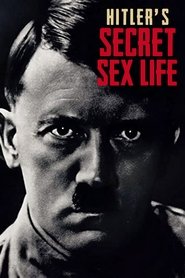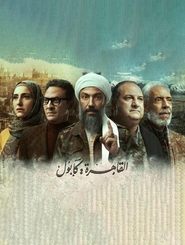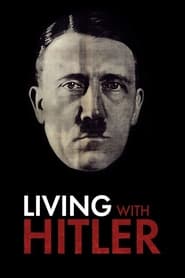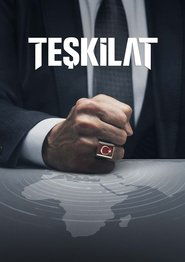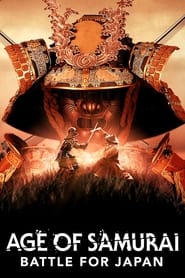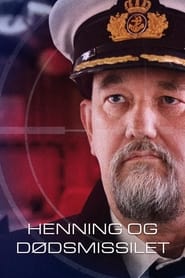New War Politics TV Series on Pantaflix - Page 28
-
Hitler's Secret Sex Life
2021
star 4Hitler’s Secret Sex Life exposes the myriad of rumours, theories and disputed historical accounts of Adolf Hitler's sexual psychology. There is no shortage of experts on Hitler's sex life who consider his predictions to be a barometer of the dictator's twisted psyche. Each episode will address a specific time period of Hitler's alleged and proven sex life and explores the role it played in shaping his behaviour. -
Sedat Peker vs AKP
2021
Sedat Peker vs AKP
2021
star 9.8A mafia leader with deep connections to the government is ousted and his house raided. Now he is seeking revenge against the ones done him wrong by exposing the dark connections between the mafia and the government. -
Tucker Carlson Originals
2021
star 8.1Join Tucker Carlson and his team as their cameras take you inside the issues for a new documentary news magazine, ‘Tucker Carlson Originals’ -
The Buildings That Fought Hitler
2021
star 5.3Exploring the buildings that were built to defend Britain from a German invasion during World War II. From coastal defences, to secret bases, travel across Britain looking at the buildings that were built to fight Hitler and his advancing army. -
El Judici
2021
-
Jue Mi Shi Ming
2021
Jue Mi Shi Ming
2021
In order to support the Central Soviet Area in breaking the Kuomintang’s military "encirclement and suppression" and economic blockade, the Central Committee of the Communist Party of China decided to establish a red communication line from Shanghai to the Soviet Area via Hong Kong and Shantou. Zou Zuo Ren is the head of the Bogongao station of the transportation line. Together with other large, medium and small transportation stations, he is carrying out the top-secret mission of transporting personnel and scarce supplies to the Soviet area and also transporting funds and intelligence from the Soviet area to the Shanghai Party Central Committee. Under the leadership of Zou Zuo Ren, the traffic men battled wits with the enemy. -
The Glory of Youth
2021
The Glory of Youth
2021
star 6.5A group of university students joins the rocket force, facing rigorous training under experienced soldiers. Among them, four roommates—Xia Zhuo, Ouyang Jun, Lin An Bang, and Yi Zi Meng—struggle to adapt. Despite initial doubts, their journey transforms them into true soldiers. -
Greta Thunberg: A Year to Change the World
2021
star 3.9This revealing series follows environmental activist Greta Thunberg as she seeks to raise awareness of the accelerating climate change and spread her message, that we must act to drastically reduce our carbon emissions. -
Al-Qahera : Kabul
2021
Al-Qahera : Kabul
2021
star 3Through three intertwining tales, the series sheds light on the terrorist acts taking place in the Arab region, especially Egypt, through the stories of the terrorist Ramzy, the police officer Adel who faces off against him, and the broadcaster Tarek Kassab who reports the events to the audience. -
86 EIGHTY-SIX
2021
86 EIGHTY-SIX
2021
star 8.1Called “Juggernaut,” these are the unmanned combat drones developed by the Republic of San Magnolia in answer to the attacks by the autonomous unmanned drones of the neighboring Empire of Giad, the “Legion”. But they’re only unmanned in name. In reality, they are piloted by the Eighty-sixers—those considered to be less than human and treated as mere tools. Determined to achieve his own mysterious ends, Shin, the captain of Spearhead Squadron, which is comprised of Eighty-sixers, continues to fight a hopeless war on a battlefield where only death awaits him. -
Making History
2021
-
The Barents Sea
2021
The Barents Sea
2021
Year 1944. According to information received from a recruited German agent, the Nazis are planning a major act of sabotage in one of the Arctic ports through which the Soviet Union is supplied with food, goods and material of vital importance from the Allies under the Lend-Lease programme. Heroes Yelena Soley and Sergey Saburov, from the "The Black Sea" series, will have to disrupt the enemy operation and save the port from impending disaster -
Once Upon a Time in Cyprus
2021
star 9.7The series takes place during the period of Bloody Christmas and depicts attacks carried out on Turkish Cypriots. It focuses on the activities of the Greek Cypriot nationalist group EOKA-B. The series is based on the island-wide violence that led to the civil war between Turkish and Greek Cypriots that ended in 1974. -
The Long Ballad
2021
The Long Ballad
2021
star 8.6Li Chang Ge's family was murdered by Li Shi Min, the Emperor of Tang, during the Xuanwu Gate Incident. She heads to Shuo Province under the guise of a man with hopes of raising an army to kill Li Shi Min to avenge her family's death. However, as a captain of the army of Shuo Province in Zhangzhou, she loses a siege by the Eastern Turkic Khaganate General Ashina Sun, who takes her to serve him as a personal military strategist. -
Modern Conflicts
2021
Modern Conflicts
2021
star 8The 21st century may be the most peaceful in history so far, but we are still not completely free from wars and conflicts. From 1980 to the present day, Modern Conflicts explores recent struggles between nations and peoples. -
Living with Hitler
2021
Living with Hitler
2021
star 8.8The Nazi era from 1993 to 1945 is illustrated through archived material, with insights and anecdotes provided by world-leading experts and commentators. -
The Shadow Team
2021
The Shadow Team
2021
star 7.2National Intelligence Organization members are always ready to serve to destroy the enemies of Türkiye. -
Age of Samurai: Battle for Japan
2021
star 7.1Dynamic reenactments and expert commentaries bring to life the tumultuous history and power struggles of a warring 16th-century feudal Japan. -
Sharon
2021
Sharon
2021
Follows Sharon's term as PM from the moment he was elected. The series goes through his leadership under mass terror attacks, his willingness to support the two-state solution, his decision to start Operation Defensive Shield in 2002, his demand from the Palestinians to replace Yasser Arafat as a condition for all negotiations, the establishment of the separation fence, and the disengagement from Gaza that turned his greatest supporters into sworn enemies. In addition, the series returns to selected chapters in Sharon's life as a child in Kfar Malal, as a family person, as a soldier and as minister in Israeli governments. Among the interviewees: Gilad Sharon, Dov Weissglas, Eyal Bronze, Uri Monday, Moshe Kaplinsky, Israel Maymon, Assi Yavni, Tzipi Livni, Gideon Saar and Aria Eldad.
 Netflix
Netflix
 Amazon Prime Video
Amazon Prime Video
 Apple iTunes
Apple iTunes
 Apple TV Plus
Apple TV Plus
 Disney Plus
Disney Plus
 Google Play Movies
Google Play Movies
 Paramount Plus
Paramount Plus
 Hulu
Hulu
 HBO Max
HBO Max
 YouTube
YouTube
 fuboTV
fuboTV
 Peacock
Peacock
 Peacock Premium
Peacock Premium
 Amazon Video
Amazon Video
 The Roku Channel
The Roku Channel
 AMC+
AMC+
 Kocowa
Kocowa
 Hoopla
Hoopla
 The CW
The CW
 Vudu
Vudu
 Starz
Starz
 Showtime
Showtime
 PBS
PBS
 Pantaflix
Pantaflix
 FXNow
FXNow
 Tubi TV
Tubi TV
 Kanopy
Kanopy
 Comedy Central
Comedy Central
 Crunchyroll
Crunchyroll
 Microsoft Store
Microsoft Store
 Redbox
Redbox
 Sun Nxt
Sun Nxt
 ABC
ABC
 DIRECTV
DIRECTV
 Crackle
Crackle
 Fandor
Fandor
 Plex
Plex
